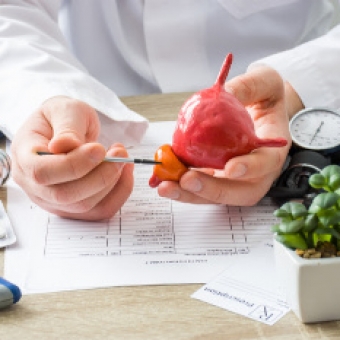
All News
Upcoming Events
Sex therapy is a form of counseling intended to help individuals and couples resolve sexual difficulties, such as performance anxiety or relationship problems.
The vagina is a flexible organ that can undergo many types of stretching over a lifetime, from tampon or vibrator insertion, to pelvic examination or intercourse, to childbirth. But after any stretching, it’s designed to go back to its original size.
Erectile dysfunction (ED) can occur after prostate biopsy, but the reasons for this are unclear. Some men do recover their function in a few months, however.
Prostatitis is inflammation of the prostate gland. Sometimes, surrounding tissue becomes swollen and inflamed as well.
There are several different types of prostatitis. Acute bacterial prostatitis is caused by a bacterial infection and happens quickly. (In contrast, chronic bacterial prostatitis is ongoing, by definition lasting over three months). Acute bacterial prostatitis can be severe.
“Edging” is a sexual practice that allows a person to delay orgasm. Some people find that this technique makes their orgasm more intense, once it does occur.
A vaginal pessary is a small, plastic device that supports a woman’s pelvic organs (the uterus, cervix, vagina, bladder, urethra, small intestines, and rectum).
As the name suggests, ejaculatory dysfunctions occur when a man has problems ejaculating, even when he is completely aroused. They generally fall into the following six categories:



